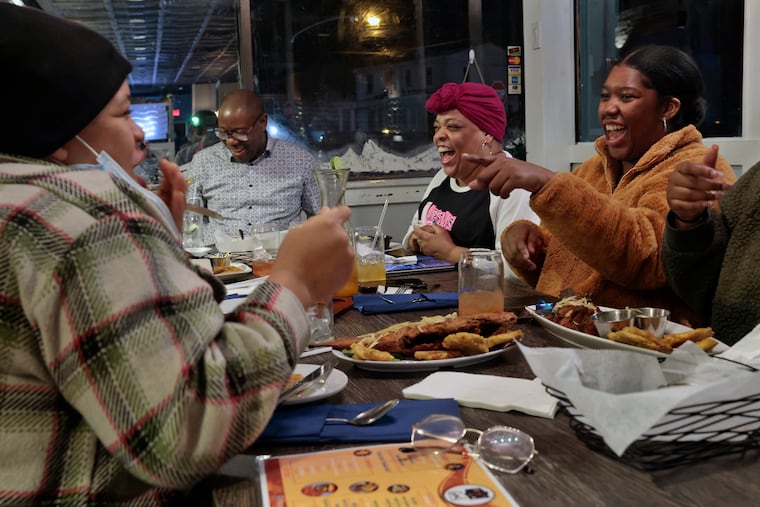Haitian Creole classes serve as connection to heritage for Philly Haitian diaspora
The classes are part of a rise in postcolonial reclamation of Black, Indigenous Haitian culture.

Haitian culture was all around Alain Joinville when he was growing up in Flatbush, Brooklyn.
He could hear Haitian Creole music when he and his family would go shopping on the weekend, from his mainly Haitian classmates, at the Haitian church, in the Haitian restaurants scattered off Flatbush Avenue and at home, where his mom would speak to Joinville and his siblings in Haitian Creole — but they would always respond in English.
As an adult, Joinville, a Philadelphia resident, was still able to understand Haitian Creole — which is a language with roots in both Indigenous African languages and French — thanks to his immersion and connection to the language growing up. But his speaking skills weren’t so fluent, family members often teasing him that his tongue was heavy as he spoke the language. So when he came across an Instagram post with an opportunity to take Haitian Creole classes during the pandemic, he quickly signed up.
» READ MORE: The Haitian American musical performance that’s connecting Black resistance in Haiti and Philadelphia
“I wanted something to connect with my heritage and culture … and I didn’t have the opportunity to do that because everything was closed,” said Joinville, who is also the director of strategic communication and programs in the city’s Office of Immigrant Affairs.
The Zoom classes Joinville came across during the pandemic were the first opportunity he found in his adult life to constructively relearn his native language. Opportunities to learn Haitian Creole are growing — including in Philadelphia — which Haitian Americans say is a reflection of the diaspora reclaiming its roots, but also a postcolonial reclamation of pride specifically in their Black, Indigenous roots.
“Certain people look down on Haitian Creole … as not the superior language,” Joinville said.
While Haiti achieved independence from its colonizer, France, in 1804, French colonialism continues to have a stronghold on the country and culture today. Many schools in the country teach in French, and with Haitians there is a general perception that those who are more educated and privileged speak French, while those with a lower socioeconomic status only speak Creole.
“It’s interesting to see, at least in America, the flipping of that on its head … where people are taking pride in Haitian Creole,” Joinville said.
That pride is exactly what motivated Stephanie Sylvain to start organizing Haitian Creole classes in Philadelphia.
» READ MORE: Soup joumou is a taste of freedom for Haitians celebrating independence across Philly
A Haitian American and former president of Haitian Professionals of Philadelphia, Sylvain had had many conversations with people of Haitian descent about their roots and heritage. Every person agreed on their love for the country, the food, and the culture — but a number of them, including Sylvain, didn’t know how to speak the language fluently.
“It’s the importance of communication and connection,” Sylvain said. “Our Haitian Creole is communicated with English mixed in it because we’re not fluent — having an opportunity to really be able to communicate myself personally as well as give other people the opportunity to do so meant a lot to me.”
Sylvain ended up connecting with Joel Leon, a Haitian historian and language teacher, through her Haitian church, and he agreed to lead the classes.
“The first generation has a responsibility to preserve the Haitian culture as a whole, but particularly the Creole language,” Leon said in French. “It’s a way not only to preserve the language, but also to establish a connection between Haiti and the diaspora.”
But the classes have also served non-Haitians, such as Nicole Austin-Hall and her daughter, Aijeé Austin, who have found community and connection through the classes.
“It’s important to be world citizens ... and it’s important to know where we come from as African Americans,” said Austin-Hall. “It’s important for me to submerge my children in various cultures, so they can know who they are and identify with all people.”